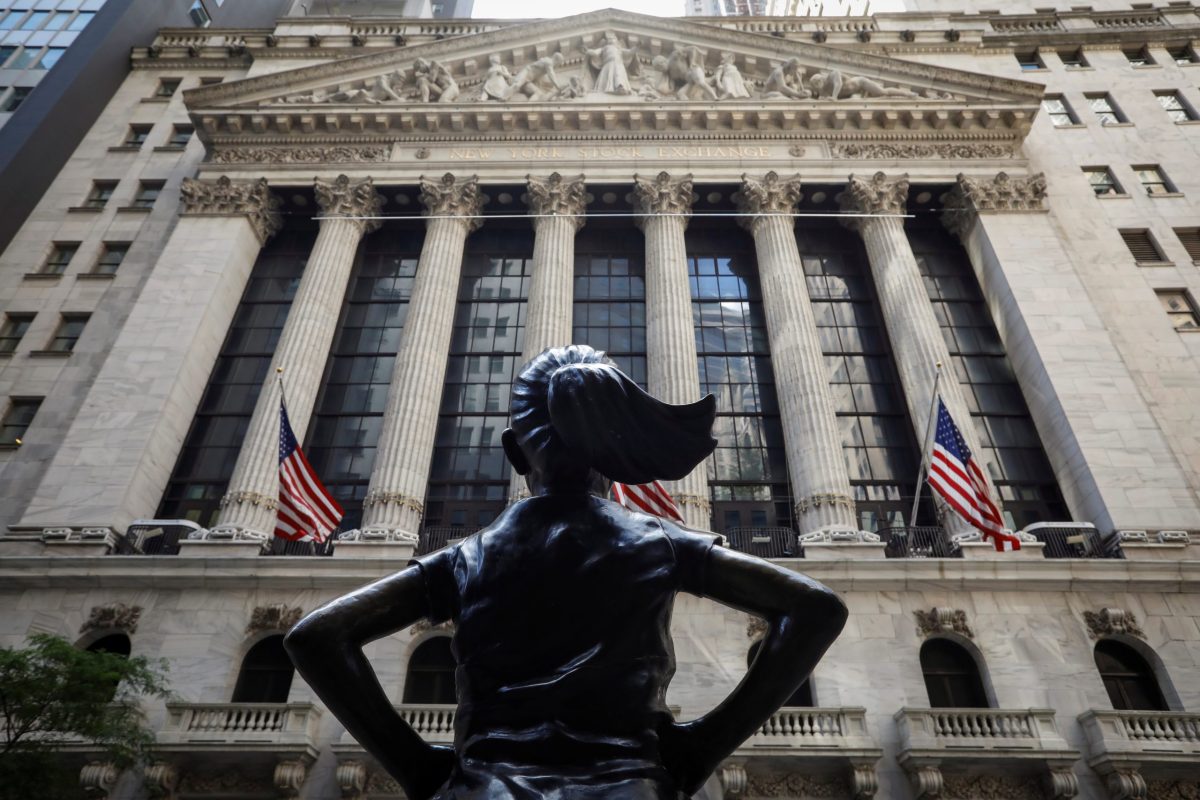BY MEDHA SINGH AND DEVIK JAIN
The S&P 500 was set to open at a record high on Monday for the sixth straight session, as bets on an economic revival due to prolonged central bank support put it on course for its best August in decades.
The Federal Reserve’s commitment to tolerate inflation and keep interest rates low, positive developments in vaccines and treatments for COVID-19 and a momentum-driven rally in tech-focused stocks have helped the S&P 500 and Nasdaq hit consecutive all-time highs recently.
The blue-chip Dow is within 3% of its record close on Feb. 12.
“There is a reallocation of assets from sectors that are not performing, into sectors that are,” said Stan Gregor, chief executive officer of Summit Financial LLC in Parsippany, New Jersey.
“Right now the euphoria is stay long on technology and stay-at-home stocks.”
The three main indexes are also set for their fifth straight monthly rise following March lows, with the S&P 500 looking at its biggest percentage rise in August since 1984, even as economic data pointed to an uneven recovery from the steep downturn.
China data showing a solid pace of expansion in the services sector this month lifted spirits at the start of the week. Focus will now be on the August U.S. jobs report slated for Friday.
U.S. presidential campaigns are set to take center-stage in the coming weeks with market volatility expected to spike ahead of polling in November.
At 8:15 a.m. ET, Dow e-minis were up 17 points, or 0.06%. S&P 500 e-minis were up 5 points, or 0.14% and Nasdaq 100 e-minis were up 26.5 points, or 0.22%.
Among early movers, Aimmune Therapeutics Inc more than doubled premarket after Swiss food group Nestle SA offered to pay $2 billion for full ownership of the peanut allergy treatment maker to expand its fast-growing health science business.
Apple Inc and Tesla Inc rose about 0.8% each, as their stocks became less costly after their pre-announced stock splits took effect.
Suitors for TikTok’s U.S. assets, Microsoft Corp, Walmart Inc and Oracle Corp, dropped between 2.0% and 2.5% as China’s new rules around tech exports meant a deal with ByteDance could need Beijing’s approval.



































